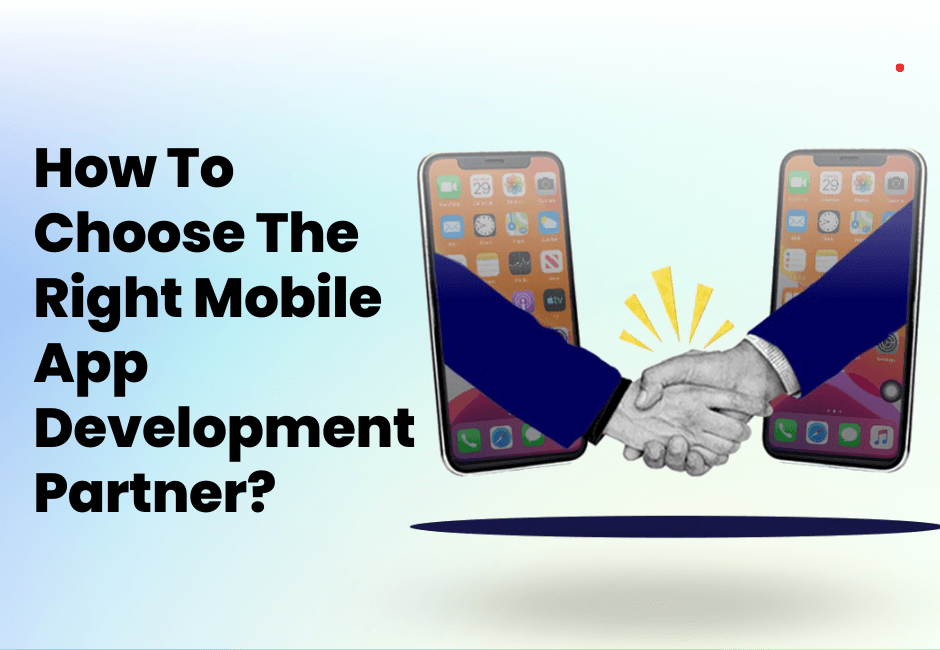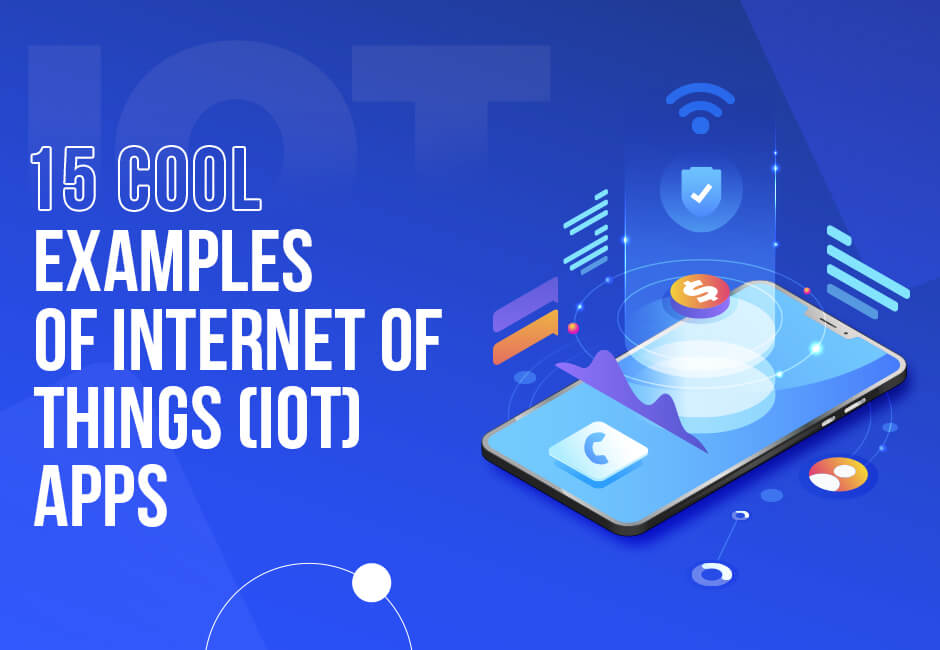
The explosive growth of eCommerce proves that people love online shopping. With 80% of American adults owning smartphones, mobile apps are essential for the eCommerce industry. Nowadays, mobile apps play a critical role for each business, and for an eCommerce firm, building an eCommerce mobile app is a basic necessity.
With the current world population of around 8 billion people, do you know that in 2023, more than 2.1 billion people shop on eCommerce platforms? Interestingly, most of them have dedicated eCommerce apps to do so. The global eCommerce market reached $6.3 trillion in 2023, and today, if you want to create a sustainable eCommerce startup, you need an app-centric strategy for sure.
But why must you develop a mobile app for your eCommerce venture? This blog will give you a comprehensive answer to that question. So read this article till the end.
Reasons Mobile App Crucial For Startup Success In eCommerce:
In 2022, eCommerce mobile apps generated around $3.59 trillion in revenue, a sharp 8.1% jump from 2021, with a projected CAGR of 10.78% by 2030. Meanwhile, theeCommerce app sessions increased by a whopping 121%. So, the growth of eCommerce mobile apps shows no sign of slowing down.
The question is, why? Here are a few compelling reasons describing why you should develop a mobile app for your eCommerce startup. It will also provide a clear insight into why online shoppers prefer eCommerce mobile apps over eCommerce web platforms.
#1 Reduced Response Time:
Mobile apps run faster than websites. It is one of the significant reasons behind developing eCommerce apps over web platforms. Mobile apps download far less data from servers compared to websites and web applications, allowing users to complete their actions or tasks quickly. Developing an eCommerce application allows the eCommerce merchant to reduce the waiting time for users to load any product page. It will enable customers to scroll your eCommerce apps more proactively and set a default preference on app settings to get relevant content.
#2 Aiding Better Data Collection To Improve Service Quality:
The eCommerce landscape become incredibly competitive in the last few years. So, to stand out, eCommerce brands need a robust customer relationship. Knowing the buying behaviour and patterns of online shoppers is the best way to do that. Having an eCommerce app can help you get that crucial information and establish a flourishing relationship with your clients. Furthermore, with the help of this information, you can create an effective business strategy for your eCommerce startup and attract more shoppers to your platform. The mobile apps store essential customer data that includes buying patterns, needs, preferences, and wish lists crucial for startup success in eCommerce.
#3 Greater Brand Recognition:
eCommerce mobile app development allows you to make your brand more recognized among customers than competitors. When you have a dedicated eCommerce mobile application, you can offer your products and services online. Furthermore, with the help of your eCommercemobile app, you can integrate all your communication options, enabling your audience to interact and engage with your brand without any obstacles or hurdles.
#4 Enhanced User Experience:
Compared to websites, developing a mobile app for an eCommerce business ensures enhanced user experience. Mobile apps facilitate more streamlined and simplified user navigation, allowing users to stay focused on their searches to find the products and services relevant to them. An enhanced user experience of eCommerce apps is one of the fundamental reasons for developing an eCommerce mobile app, as it ensures more sales and conversions.
#5 Most Secure Payment Option:
Another critical reason shoppers prioritize eCommerce mobile apps over websites is that they offer the most secure payment options like digital payment, debit cards, credit cards, etc. These payment options ensure a seamless and protected payment experience for users. eCommerce mobile apps enable users to shop online effortlessly instead of repeatedly typing the same banking information for each shop. A mobile app allows shoppers to store essential payment-related details and make them more secure by incorporating the latest technologies like fingerprint sensors.
#6 Mobile eCommerce Apps Boost Customer Loyalty:
It has been observed that a mobile app helps brands establish a loyal customer base. One of the reasons mobile apps are crucial for startup success in eCommerce is that they allow brands to connect with their target customers more personally. Customers who download mobile apps check out the features and services more often than traditional websites and web applications. For instance, when customers install an eCommerce mobile app, they typically return to it to check the order history or set up instant alerts for a future mega-sale event. A study reveals that users spend 3 times more time on mobile apps than on websites. Therefore, the app is crucial for an eCommerce startup to attract and retain new customers.
Surging E-Commerce Mobile App Usage Trends – A Statistical Deep Dive:
Global eCommerce traffic has seen an increase of 48% since 2019 through mobile apps and currently captures around 73% of the market share. This is because eCommerce mobile apps make it easy for customers to browse as many items as they wish and save items without any hustle.
According to an online survey, eCommerce startups that use mobile apps have 3.14 times higher conversion rates compared to eCommerce web platforms. Many customers express their satisfaction with using eCommerce mobile solutions as they provide them with a frictionless purchase journey.
In addition, the survey also reveals that more than 71% of customers prefer personalized product recommendations in mobile apps. So, as customers prefer mobile apps more than online web stores, developing a mobile app for eCommerce businesses is the only way forward for startups.
Essential Features & Functionalities For Your eCommerce App:
The features of your eCommerce mobile app should ensure a smooth customer experience for your target customers, from browsing to checking out. According to Sarah Jones, the CEO of Ecom Solutions, the features of your eCommerce app ensure these functionalities and can lead to significantly higher conversions. Here is the list of features of a mobile app crucial for startup success in eCommerce.
- Simplified App Registration Process: One of the most critical features of an eCommerce app is its easy registration process. It should enable users to sign up quickly and simplify the user journey from product discovery to checkout.
- Safe Payment Method: The app must have a comprehensive payment gateway that enables users to use a variety of payment options such as debit and credit cards, cash on delivery, digital payments, pay later, and UPI. The feature should be secured with the latest updates and encryption and equipped with one-tap payment.
- Push Notifications: This feature allows you to send notifications regarding products, discounts, and special offers directly to smartphones and other smart devices. It also informs users about the order status, special seasonal sales, and special real-time announcements.
- Product Catalog: The eCommerce app should offer a product catalogue page with high-quality images and detailed, engaging product descriptions. In addition, the catalogue page must also display customer reviews and ratings for each product and brand. A super-intuitive design and easy navigation are crucial for developing this in-app feature and tab.
- Wishlist: It allows users to add and remove items from a personalized wishlist and enables them to manage future purchases. eCommerce brands can use this feature to target promotions, reminders, and out-of-stock alerts.
- Shopping Cart: The shopping cart is a must-have feature for creating a mobile app for an eCommerce startup. It allows customers to easily add, remove, and modify items based on their buying preferences. This feature also gives users a clear summary of the total cost, including taxes and shipping fees.
- Secure Checkout: Your eCommerce app should also have a checkout cart that assists shoppers with a user-friendly checkout process while facilitating various payment options to help users take the final call before buying a product.
- Delivery Status Tracking: It is an essential feature of an eCommerce application that provides customers with real-time shipping information and tracking details. With this feature, customers can know the exact arrival date and time by using an effective tracking and monitoring mechanism.
- Customer Service: The app must have a comprehensive customer support system that offers various support channels, including live chat, email, or phone. Furthermore, the feature should also include a complete FAQ section to address fundamental and advanced queries.
- Search & Filters: All the features of an eCommerce app should be equipped with robust search functionality with filters to help users find their preferred products quickly. The feature should also offer sorting options to shoppers based on relevance, popularity, price, most-selling items, etc.
Additional Features For Your eCommerce Mobile Application
#1 Augmented Reality (AR) Product Preview:
- Allow users to visualize products in their real-world environment through AR.
- This feature is handy for items like furniture or clothing.
#2 Voice Search:
- Implement a voice-activated search feature for hands-free navigation.
- Enhances accessibility and convenience for users.
#3 Chatbots for Customer Assistance:
- Integrate AI-powered chatbots for instant customer support.
- Handle routine queries, assist in product selection, and provide information on order status.
#4 Machine Learning and AI-driven Recommendations:
- Utilize AI algorithms to analyze user behaviour and provide highly personalized product recommendations.
- Improve cross-selling and upselling opportunities.
Tech Stack Used For eCommerce Mobile App Development:
You have plenty of options when building a building app for eCommerce e-business. However, it is worth noting that the mobile app’s choice of tech stack is crucial for startup success in eCommerce. It determines the overall functionality of the in-app features and UX/UI components and ensures a smooth and frictionless performance. Here are the various tech stacks that can be used to build an eCommerce mobile app.
Front-end:
- Native: For platform-specific experiences (React Native for iOS/Android, Flutter for cross-platform), offering high performance and smooth animations.
- Hybrid: Faster development and cross-platform reach using tools like Ionic or Xamarin, but may trade off some performance and native features.
- Progressive Web Apps (PWAs): Lightweight, accessible on any device, and utilize web technologies like HTML, CSS, and JavaScript. Great for simple stores with good browser support.
Back-end:
- Node.js: Popular choice for its scalability, real-time capabilities, and extensive ecosystem of libraries. Frameworks like Express.js simplify development.
- Ruby on Rails: Agile and developer-friendly with built-in features like authentication and authorization.
- PHP: Cost-effective and intuitive, with frameworks like Laravel offering powerful functionalities.
Server Communication:
- REST APIs: The industry standard for secure and predictable communication between front-end and back-end.
- GraphQL: More flexible data fetching allows clients to specify exactly what data they need.
Programming Languages:
- Native: Java/Kotlin for Android, Swift/Objective-C for iOS for optimal performance.
- Cross-platform: JavaScript (React Native, Ionic), TypeScript (Flutter) for broader reach.
- Server-side: JavaScript (Node.js), Ruby, PHP, Python, depending on the chosen back-end framework.
Cloud Service:
- AWS: Scalable, feature-rich, and highly reliable, but can be complex to manage.
- Google Cloud Platform (GCP): Competitive prices, user-friendly interface, and integrates well with Google Analytics.
- Microsoft Azure: Robust platform with solid security features, ideal for enterprise-level applications.
Database:
- NoSQL: MongoDB for flexibility and scalability, Firebase for ease of use, and integration with Google services.
- SQL: MySQL or PostgreSQL for relational data with established query languages.
Payment Processor:
- Stripe: Globally accepted, developer-friendly API with built-in fraud prevention.
- PayPal: Widely recognized and trusted, offering multiple payment methods.
- Braintree: Flexible platform with advanced fraud protection and tokenization features.
The Most Successful eCommerce Mobile Apps:
Rank | App Name | Market Leader | Country of Origin | 2023 Revenue (USD Billion) | Sector | Downloads (Million) | Projected Future Growth (%) |
1 | Amazon | Global | United States | 522.1 | General Merchandise | 6,500 | 15-20% |
2 | Alibaba | China | China | 836.6 | General Merchandise | 2,100 | 10-15% |
3 | Pinduoduo | China | China | 170.8 | Online Groceries & Social Commerce | 820 | 20-25% |
4 | Meituan | China | China | 112.7 | Food Delivery & Services | 680 | 15-20% |
5 | JD.com | China | China | 145.1 | General Merchandise & Electronics | 450 | 10-15% |
6 | Shopee | Southeast Asia | Singapore | 43.5 | General Merchandise & Mobile-First | 850 | 25-30% |
7 | Flipkart | India | India | 14 | General Merchandise & Fashion | 380 | 20-25% |
8 | Myntra | India | India | 7 | Fashion & Lifestyle | 250 | 25-30% |
9 | Shopify (Platform) | Global | Canada | 3.9 | eCommerce Platform-as-a-Service | N/A | 20-25% |
10 | Temu | United States | United States | 3.6 (Est.) | Flash Sales & Discounted Goods | 180 | 30-40% (Early growth) |
What points need to be addressed while developing an eCommerce mobile app?
Developing an eCommerce mobile app has many challenges. You need reliable eCommerce application development services to build and launch the app from scratch. However, it’s also essential to have a comprehensive idea regarding the steps of developing a well-engineered eCommerce app. The most elementary steps are as follows:
#Determine Scopes & Purpose Of Your App:
- Define your eCommerce app’s purpose and goals.
- Identify the reasons to make your brand stand out in the crowded market.
- Prioritize the customer pain points that you want to solve.
#Choose Your Target Market Carefully:
- Who are you selling to? Understand their needs and habits.
- What are the existing eCommerce solutions they are using currently?
- Analyze your target market demographics.
- Craft the app’s design and functionality to meet their preferences.
#Determine The App Type:
- Decide between a native, web, or hybrid app based on your objectives and target audience.
- Analyze the pros and cons for each.
- Consider cost, user experience, and performance when making this decision.
#Decide The Requirements & In-App Features:
- Prioritize essential features like a user-friendly interface, push notifications, robust payment gateway, secure checkout, and personalized recommendations.
- Make room for additional features you want to incorporate, such as social media integration, Augmented Reality, and Chatbots.
#Resource Planning & Allocation:
- Allocate resources based on your budget and timeline.
- Assemble a development team with expertise in mobile app development and eCommerce.
#App Launch & Quality Testing:
- Conduct thorough testing for functionality, security, and usability.
- Plan a strategic launch, considering peak shopping times and marketing efforts.
#Digitally Promote Your eCommerce App:
- Use social media, influencer marketing, and email campaigns to create awareness.
- Implement SEO strategies to optimize app visibility on app stores and search engine result pages.
#Post-Launch Support & Updates:
- Provide customer support channels within the app.
- Regularly update the app to fix bugs, enhance features, and adapt to market trends.
How Much Does It Cost To Build An eCommerce Mobile App?
The development cost of an eCommerce application depends on various factors as they determine how much money you have to spend on your eCommerce app. These factors include:
- The Complexity & Scope Of The App – Functionality & Scalability Requirements, Basic, Mid-Range. Super-Complex
- What Platform Will The App Be Developed For – Cross-Platform, Native, Device Fragmentation
- Integration Of Third-Party APIs – Hosting, Availability, & Quality
- UI/UX Requirements – User Interaction Features & Design Complexity
- Location Of The Development Partner – Influencing Hourly rates & Communication Overheads
Based on these factors, it is safe to assume that a mobile eCommerce app can cost anywhere from $10,000- $3,50,000.
How Can Logic Square Technologies Help You Build an App For Your eCommerce Business?
Do you want to build an efficient eCommerce app and move your business forward? Logic Square Technologies can help you. We are your trusted partner in providing top-notch eCommerce application development services in the USA. We have an experienced and efficient development team that can develop cutting-edge and user-centric apps tailored to meet the needs and requirements of your customers.
In addition, we provide expert guidance through close collaboration to define your app’s goals, target audience, and critical features. We specialize in developing high-end eCommerce apps at a competitive cost while providing SMEs and startups an opportunity to grow. So, if you aim for feature-rich app development for your eCommerce app, we are your perfect destination.
Want to take your eCommerce business to new heights? Schedule a free consultation with our experts.
Final Words:
The concept of eCommerce is becoming increasingly popular across industries around the world. In this context, the significance of developing eCommerce mobile apps can not be ignored anymore. As consumers increasingly turn to mobile devices for shopping, a well-designed and user-friendly app can give startups a competitive edge. Developing an eCommerce app is not an option anymore; it’s a strategic choice to ensure sustained growth and ever-lasting brand loyalty in the fast-paced world of eCommerce.








